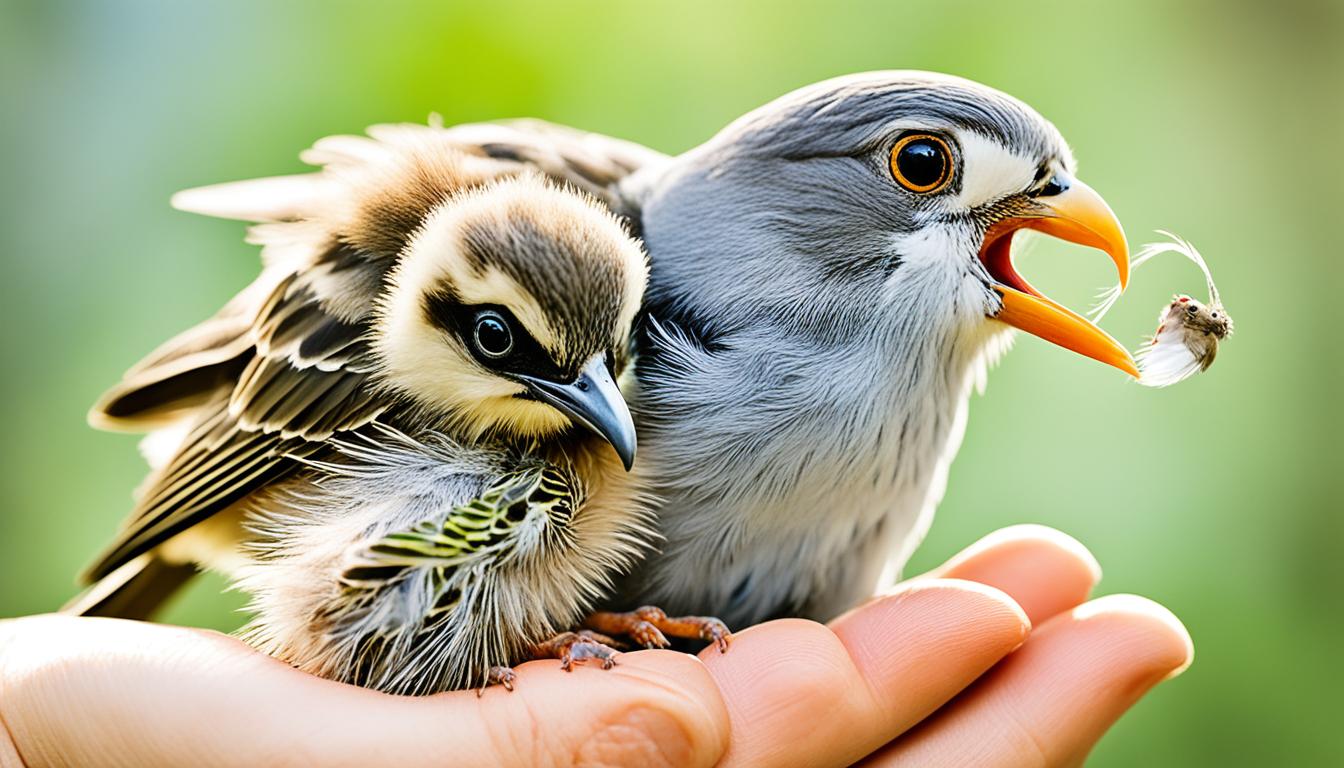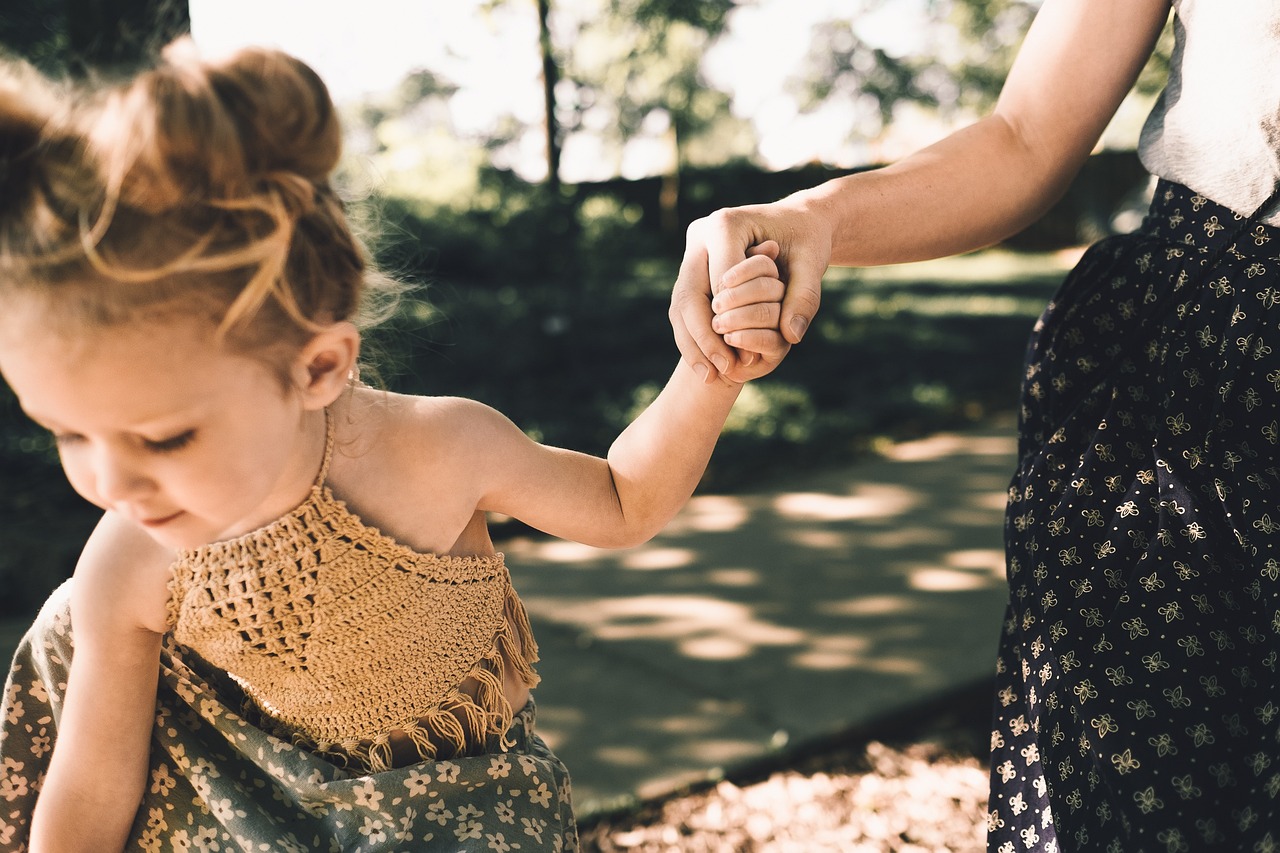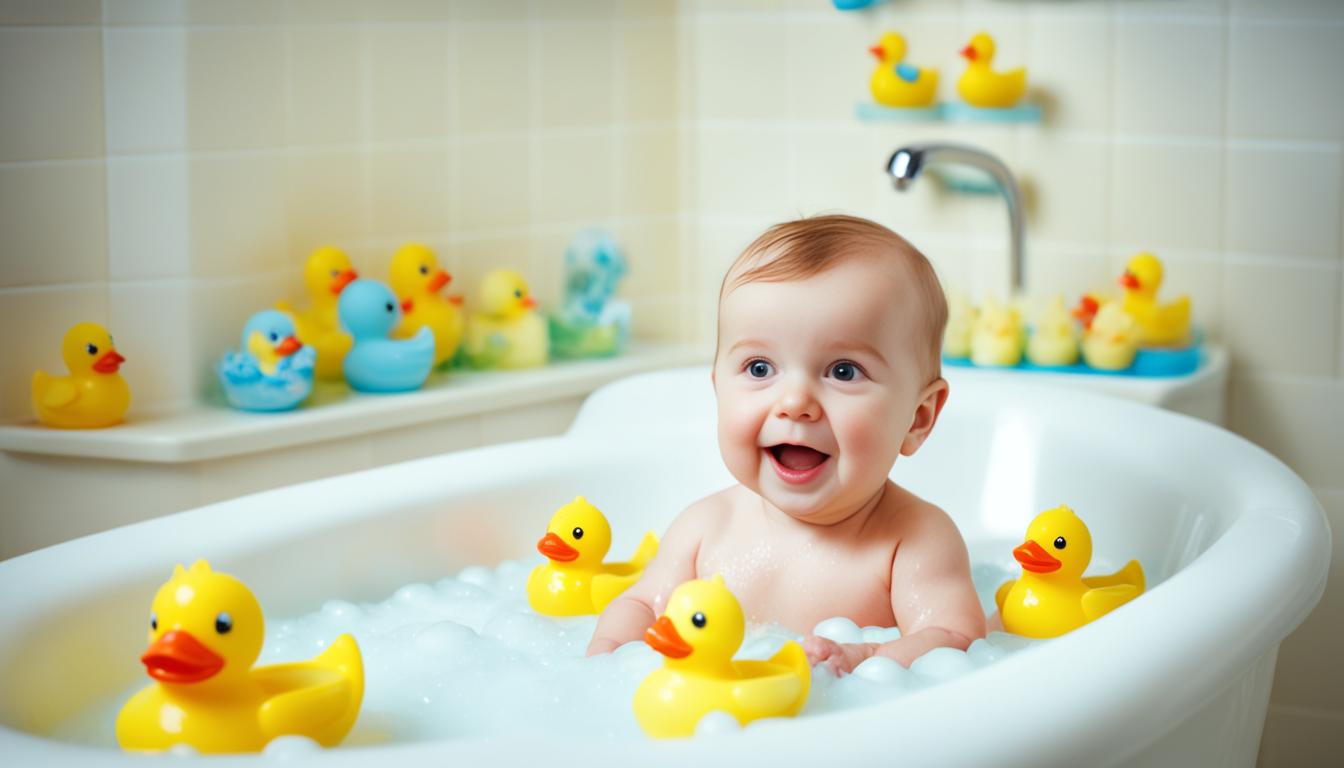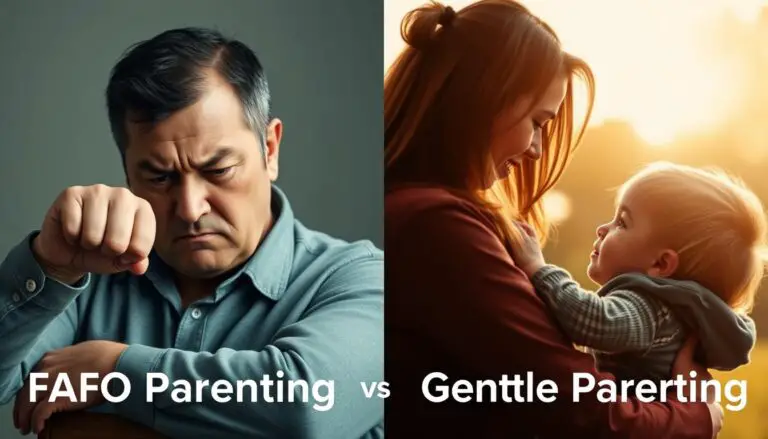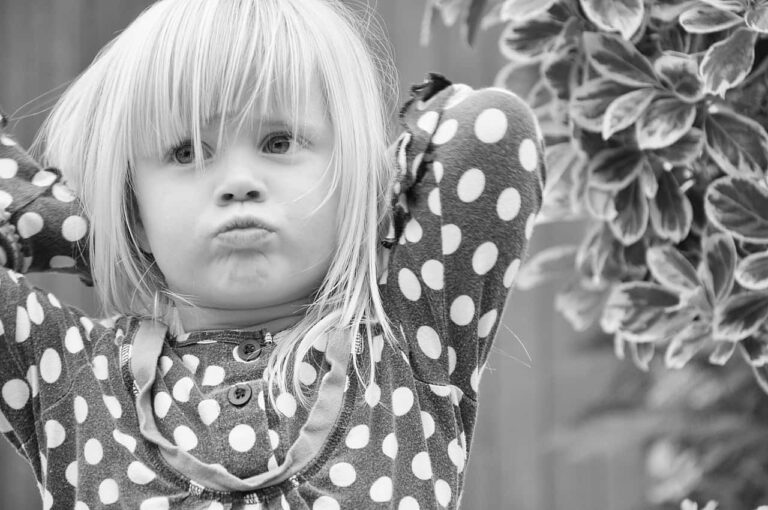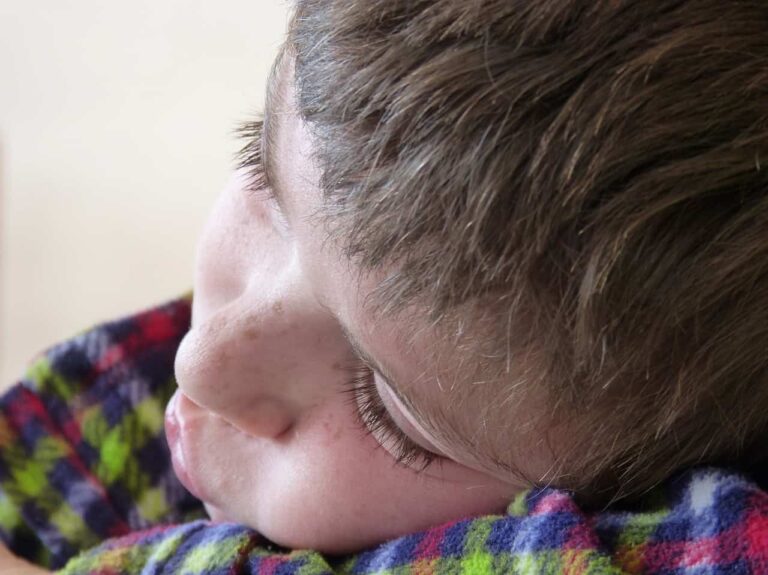Eggshell Parenting: Nurturing or Overprotective?
If you’re raising kids, you might know about ‘eggshell parenting.’ This means being super careful, like you’re walking on eggshells. You don’t want to upset or hurt your child. Parents in this style aim to protect their kids from bad things. But, sometimes, they might go too far. This can stop kids from learning important life skills.
People have different thoughts about eggshell parenting. It’s all about being very loving and supportive. But it can become too much. This makes us wonder where to draw the line. By looking at eggshell parenting, we see why some parents act this way. We also see how it affects kids’ confidence and problem-solving.
Key Takeaways
- Understanding eggshell parenting can help you identify if you’re being nurturing or overprotective.
- Recognizing the signs of eggshell parenting allows for a healthier parenting style approach.
- Balancing safety with independence is crucial for your child’s growth and self-reliance.
- Considering alternative parenting styles could provide a more empowering environment for children.
- Reflecting on your parenting methods can lead to adjustments for a balanced nurturing experience.
The Essence of Eggshell Parenting
Exploring the essence of eggshell parenting reveals a desire to protect. This often turns into overprotectiveness, rooted in fear of dangers. These fears could hurt kids physically or emotionally. Parents’ main goal here is safety. But, being too focused on protecting can actually stop growth and learning.
Looking deeper into eggshell parenting shows us something. Parents might control too much of their kids’ lives. They control things like playdates and school work. This doesn’t let kids solve problems on their own. It can make them less confident about dealing with life’s surprises.
Parents want to keep their kids safe, which is natural. But, trying to make everything too safe can be too much. This can stop kids from having hands-on learning. They might not learn how to bounce back from challenges. The big challenge in eggshell parenting is balancing protection with letting kids grow on their own.
Here are some issues caused by cautious parenting:
- Kids may not get to explore much to avoid getting hurt.
- They might not make friends easily due to controlled social lives.
- Interfering too much in school work can stop them from learning from mistakes.
Understanding the essence of eggshell parenting is key. It helps parents find the right mix of caring and giving kids freedom. By thinking about your parenting style, you can adjust. This way, you protect your kids while helping them grow confidently.
Identifying the Signs of Eggshell Parenting
When parenting, it’s vital to know about “eggshell parenting.” It’s important to spot signs of eggshell parenting. This helps you build a good relationship with your child. A relationship that helps them grow.
Over-Involvement in Child’s Life
Being too involved in your child’s life is a sign of eggshell parenting. You might be too present in everything they do. This can stop them from making choices on their own. It shows they need your help too much, slowing their growth.
Discouraging Risk for Safety’s Sake
Trying to keep your child totally safe is part of eggshell parenting. It means keeping them away from even small risks. This can keep them from important life experiences. These are needed to learn how to handle tough times.
Heightened Anxiety Around Child’s Well-Being
Fretting too much over your child’s safety is another warning sign. It can make you always worried. This worry can also make your child anxious. Spotting this sign helps balance your parenting style.
| Signs of Eggshell Parenting | Consequences | Solutions |
|---|---|---|
| Over-involvement in academics and friendships | Lack of child’s self-efficacy | Encourage independent tasks and decision-making |
| Discouragement of any risk-taking activities | Child misses out on learning through experience | Promote safe yet challenging opportunities for growth |
| Anxiety about child’s safety and success | Increase in child’s anxiety and stress levels | Model healthy coping strategies; seek professional help if necessary |
By thinking about these signs and your way of parenting, you create a space that’s both supportive and frees your child to be independent. Seeing signs of eggshell parenting starts you on the path to a place where your child can do well.
The Balancing Act: Safety vs. Independence
As a parent, the balance between safety and freedom is key. It’s natural to want to keep them safe. But, they also need to explore. This helps them grow strong. Finding the right balance means taking some risks while being careful.
Here are some ways to keep a good balance between safety and freedom:
- Set age-appropriate boundaries to create a safe framework within which your child can take small risks.
- Educate about safety while also discussing the growth opportunities that come from trying new experiences.
- Encourage decision-making by offering choices within a securely established environment.
- Discuss the natural consequences of actions as a way to build an understanding of risk and reward.
Making mistakes helps kids learn. Strong people aren’t just born. They grow from taking chances and facing problems. So, it’s good to let kids try things, even if they might fail sometimes.
“Do not confine your children to your own learning, for they were born in another time.” – Hebrew Proverb
This saying tells us to update how we help our kids grow. They need to try things in their own way.
The table below shows the difference between being too protective and giving healthy freedom. It helps us see how to find a good balance.
| Aspect of Parenting | Overprotection | Healthy Independence |
|---|---|---|
| Approach to Safety | Closely monitored, with strict limitations | Guidelines that allow for self-discovery within safe bounds |
| Decision-Making | Decisions largely made by the parent | Child encouraged to make and learn from their own decisions |
| Encountering Risk | Potentially risky activities are avoided | Risks are analyzed and age-appropriate challenges embraced |
| Outcome Aligning with Resilience | Dependency and potentially lower self-esteem | Confidence and the ability to recover from setbacks |
| Long-Term Effect | May inhibit full development of independence and problem-solving skills | Child is equipped to handle life’s adversities with resilience |
By focusing on balance, you set your child up for success. Managing risks helps them learn to be safe and independent. You’re preparing them with the skills they need.
Every child is different. Finding the right balance changes as they grow. Stay open to adjusting how much freedom and protection you give. Watching your child become confident and ready for life is truly rewarding.
Eggshell Parenting
Let’s dive into eggshell parenting. It’s a cautious way families raise kids today. It starts from wanting to keep kids safe. Parents walk a fine line between helping and overdoing it. They do it all out of love, hoping to keep their kids from getting hurt.
Overprotective parenting gets lots of attention. Some say it could change how parents and kids get along. It might make it tough for kids to be strong and sure of themselves. Looking into why parents do this can help them see how it affects their kids’ growing up.
Being too careful can backfire sometimes. Making a safe space is good, but kids also need to learn on their own. They need to solve problems and handle tough feelings to grow strong.

Understanding eggshell parenting is key. It’s about finding the right mix of care and letting kids be independent. It’s not about judging but learning how to help your kid be confident and self-sufficient.
- Why we want to keep our kids too safe
- How being too protective can shape a kid’s growth
- Ways to keep caring while letting kids be free
In the end, what you learn now can change the future. Think about your parenting style. Imagine how mixing care with freedom can help your kids face life’s ups and downs.
Pros and Cons: The Parent-Child Dynamic
Eggshell parenting is a delicate balance. It’s about being sensitive without limiting the child. We’ll look into the good and bad of this approach. Understanding this helps parents adjust their methods to support their child’s growth.
Developing Decision-Making Skills
Eggshell parenting might improve kids’ choices. Parents guide a lot, but this teaches kids important skills. Yet, letting kids make their own decisions is key. Parents should step back sometimes to help their child grow.
Fostering Emotional Dependence
On the downside, eggshell parenting can make kids too dependent. If parents meet every need, kids might not learn to solve problems on their own. Parents need to know when to let kids handle things themselves.
| Pros of Eggshell Parenting | Cons of Eggshell Parenting |
|---|---|
| Can offer a secure environment that promotes safety | May restrict exposure to essential life experiences |
| Parental involvement can lead to well-structured decision-making | Potential for limited development of self-reliance and autonomy |
| Emphasizes emotional development and intelligence | Risks fostering an unhealthy degree of emotional dependence |
Parents must balance supervision and freedom. It’s crucial to teach kids to make decisions but avoid making them too dependent. Finding this balance helps kids become strong and capable on their own.
Long-Term Implications of Overprotective Parenting
Parenting choices today impact your child’s future. Overprotection, though from love, may affect their growth. It can shape their mental health, resilience, and how they make friends. Knowing these effects helps your child grow fully.
Impact on Mental Health and Resilience
Keeping your child safe is important, but too much can harm their mental health. They might struggle with stress and the unknown. Challenges help kids learn to get back up. This teaches them to face life confidently.
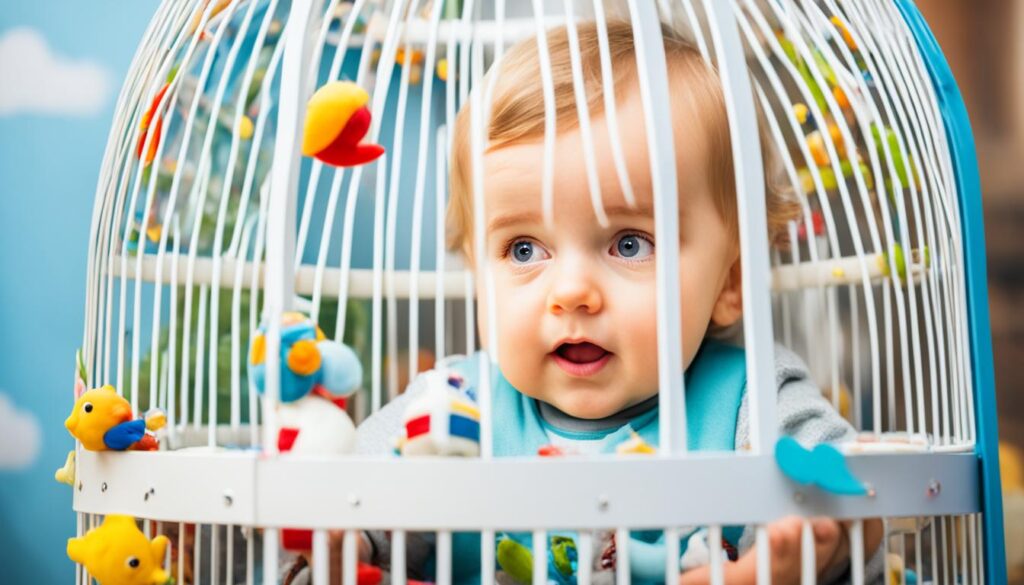
Social Skills and Relationship Building
Growing up means learning to mingle and join in with others. But too much protection can limit how kids learn to socialize. They might miss learning how to share, understand others, and work together. Encouraging your child to be social teaches them to build good relationships.
Evaluating Alternatives: Authoritative and Mindful Parenting Styles
Are you looking into alternative parenting styles instead of eggshell parenting? You’ll likely find authoritative parenting and mindful parenting They aim to help kids grow but also respect their freedom. Think about how these styles match your values and might improve your bond with your child.
Authoritative parenting is known for its well-rounded approach. It sets clear rules and supports kids. Parents talk openly, respecting their child’s views.
On the other hand, mindful parenting is about being fully present with your child. It means listening carefully, seeing moments without judging, and being emotionally generous.
| Aspect | Authoritative Parenting | Mindful Parenting |
|---|---|---|
| Discipline | Consistent, explained consequences and expectations | Emphasis on understanding and empathy, minimizes punitive measures |
| Communication | Dialogic, encourages expression from both parent and child | Attentive, validates child’s feelings by acknowledging without immediate reaction |
| Decision Making | Collaborative, allows for shared input | Child-inclusive, encourages independent thought and choice |
| Problem Solving | Encourages critical thinking and participation in finding solutions | Focuses on being present with the issue and mindfully working through emotions |
| Emotional Regulation | Teaches healthy coping mechanisms and self-regulation | Models emotional awareness and self-compassion |
As you think about these alternative parenting styles, remember no single way fits all. Your family’s unique situation, values, and your child’s needs are important. You might like authoritative parenting‘s structure or mindful parenting‘s empathy. What matters most is building a loving relationship with your child, rooted in respect and understanding.
Conclusion
Thinking about eggshell parenting shows a fine line. It’s between helping and being too protective. You aim to help your child become strong and able to do things on their own. While eggshell parenting comes from love, it’s important to know it might limit a child’s growth. You should protect your child but also get them ready for life’s tough times.
You’ve learned about the signs of eggshell parenting. It’s key to think about these signs. Then, see if you need to change how you parent. If you’re too protective, think about the impact. Ask yourself if you’re helping your child be ready for the adult world.
Looking into authoritative and mindful parenting can help. These styles respect your child’s own will but keep them safe. By mixing these methods, you can find a good balance. This balance supports freedom and safety. As your parenting journey goes on, aim to raise your child to be brave, skilled, and kind. To conclude, every step towards balanced parenting helps raise a strong adult ready for the future.

